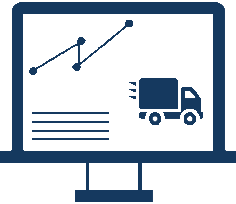
Freight Pro Logistics LLC
Frequently Asked Questions
Is Freight Pro a broker or a carrier?
- Freight Pro Logistics is a non-asset-based broker who facilitates and manages the shipment of goods with carriers on their client’s behalf, as opposed to a carrier who undertakes the actual carriage normally with their own assets such as trucks, trailers, and warehouses.
What is a bill of lading?
- A document which acknowledges receipt of the goods and establishes the terms of a contract between a shipper, transportation company or logistics provider (broker). It signifies which freight is to be moved between specified points for a specified charge. It serves as a document of title, a contract of carriage, and a receipt for goods. It is prepared by the shipper on forms issued by the broker/carrier and is a legal document.
What is an NMFC number?
- Stands for National Motor Freight Classification. A listing of items used to determine the “class” of a particular item shipped. The class of the item, along with the weight and distance traveled, are all determining factors in the freight charge.
What is a carrier PRO number?
- A carrier PRO is the number assigned to a shipment by the carrier once it has been successfully picked up from the shipper. It is used throughout the rest of the shipment’s transit until delivery for tracking-related purposes.
What is an accessorial fee?
- An accessorial is an additional fee for service beyond standard transportation pricing. Such fees would include residential or liftgate that are notated on a BOL or requested by the shipping or receiving party.
How can I track my shipments?
- You can either select the “Track Shipments” icon on the home page, which will redirect you to choose whether you want to log in to your FPL account for any Freight Pro orders or GTZShip account for any GlobalTranz orders you want to track. Or you may email us directly at Orders@freightprologisticsllc.com or even call us at our office at 909-357-9600 during business hours and one of our team members will be able to assist you.
How do I request a quote?
- You can either select the “Request Rates” icon on the home page or you may email us directly at Dispatch@freightprologisticsllc.com. You can even call our office at 909-357-9600 during business hours and one of our team members will be able to assist you.
I’ve requested a quote online. How long before I can expect a response?
- One of our team members should confirm receipt of your rate request within 30 minutes to an hour of submission. From there it can take an additional 30 minutes to an hour for our office to provide you with your rate, depending on whether you need an LTL rate or a full truckload rate. Some rates, like full truckload or volume, take longer than LTL rates to acquire because our office must source full truckload and volume carriers local to the pickup & delivery locations for both available capacity and competitive rates.
Can I insure my shipments?
- Yes, you can! Just include with your rate request online how much money (in USD) you would like your freight to be insured for, or just be sure to let one of our team members know you would like to have insurance included when being provided with a rate.
How should I be packaging my freight?
- Simply put: As well as possible. If your product is stacked on pallets, make sure to shrink-wrap the pallets well from top to bottom, taking care to make sure the shrink-wrap extends all the way to the pallet itself to keep your product from sliding off the pallet during transit. Heavy freight may seem like it won’t shift or slide but believe us, it does. If your items are loose or exposed (not in a crate or other packaging), the driver that’s dispatched to pick it up has the right to refuse it if he/she deems taking the freight to be too much of a liability in its current condition.
Do you handle hazardous materials?
- Yes! We work with a variety of carriers who specialize in handling Hazmat freight along with freight needing protection from freezing and other special handling.
Do you work with tradeshows?
- Yes, we do! We have lots of experience in dealing with tradeshow requirements and deadlines for delivery. Just let us know how we can help you.
Are there any commodities you do not handle?
- While we can handle almost any product/commodity, there may be a few exceptions. Contact us today to go over what your requirements are, and we can help you assess what sort of services you require.
What is a pickup or delivery “agent” or partner carrier?
- A partner carrier is a carrier (normally local/regional) who partners with a larger carrier in order to pick up and/or deliver on their behalf in areas where it’s not cost-effective for the larger carrier to do it themselves. This is not uncommon as even the largest common carriers (think FedEx, YRC, XPO) don’t service every single part of the country directly.
What is a customs broker?
- A customs broker is a brokerage that facilitates and manages imports and exports with the authorities designated to collect duties on imports and exports that are levied by a country. These authorities are responsible for ensuring that no illegal importation takes place. Since we only handle the transportation aspect of the freight, a customs broker is needed for the above mentioned.
How do the carriers count transit days?
- Most common less-than-truckload carriers only count workdays as transit days. They do not count the day of pickup or the weekends (Saturday and Sunday). They don’t count major holidays as transit days either. It is also important to remember that all the carrier’s transit times are estimations. A carrier’s estimated transit time is not guaranteed unless your shipment is booked with guaranteed service and a must deliver by date.
My freight was lost or damaged in transit. What are my options?
- Our sincerest apologies if this is the situation you currently find yourself in. We’re here to file claims with the carriers on your behalf should you ever need it. Just contact us to let us know the details of the OS&D and we can help you decide how best to proceed.
How do I file a claim?
- You can either select the “Submit a Claim” icon on the home page or you may email us directly at Claims@freightprologisticsllc.com. You can even call our office at 909-357-9600 during business hours and one of our team members will be able to assist you.
I’ve submitted a claim online. How long before I can expect a resolution?
- One of our team members should confirm receipt of your claim within 24-48 hours of submission. From there it can take 1-2 weeks for our office to collect the proper information and documentation to support your claim before submitting it to the carrier. From there, the carrier has the right to take up to 180 days to review the claim before giving a judgment (though claims that are well prepared usually take only half that time).
What types of payment options are available? Can I apply for credit?
- You can most definitely apply for a line of credit. We provide customers 30-day terms for payment when issued a line of credit. We also accept ACH payments and payment by credit card.
What is Freight Pro’s relationship with GlobalTranz?
- Freight Pro Logistics is an agency of GlobalTranz. They are two entirely different companies but Freight Pro Logistics contracts with GlobalTranz in order to access GTZ’s strong carrier rates and relations. Freight Pro Logistics, like GlobalTranz, has its own brokerage authority.
Ready To Ship? Get A Free Quote:
Get A Quote
Freight Pro Logistics LLC
Industry News
Title search: ✖
|
|
What shippers need to know about the port strike and cargo insuranceArticle credit: Stuart Chirls Photo credit: Stuart Chirls/FreightWaves Underwriter advises checking your policy’s fine printImporters may be out of luck if they try to make insurance claims for goods delayed or damaged during the strike by union dockworkers at U.S. ports. The International Longshoremen’s Association walked off the job at midnight Tuesday at ports throughout the East and Gulf coasts after failing to come to an agreement on a new contract with terminal operators and ocean lines represented by the United States Maritime Alliance. The job action shuts down container and vehicle imports just as the holiday retail selling season gets underway. Among other goods, it halts shipments of vital medicines, clothing, and fresh fruits and vegetables coming in from foreign markets. Any containers left at ports will remain there for the duration of the strike. “Most cargo policies do not include coverage for delay,” said Jeffery Kaufmann, executive vice president and head of marine business for insurer MSIG USA, in an email interview. Most cargo policies include a clause for what is termed Strikes, Riots & Civil Commotion (SRCC), to cover damage from vandalism, sabotage or malicious acts, among other things, caused by strikers, Kaufmann said, but shippers should check the fine print. “Exclusions in this clause often include damage due to temperature, humidity, withholding of power, fuel or labor during the strike, as well as loss of market (economic changes that occur due to competition or customer tastes) or damage due to any delay(s).” So it’s likely that a refrigerated container of bananas sitting unmonitored during the strike could spoil, a potential total loss for the shipper. There is a vast ecosystem of businesses that could potentially be impacted by the strike, including ocean cargo, property, casualty, and various other inland marine and ocean marine lines for companies supporting the ports. Supporting businesses will be idled or have reduced revenue. These include stevedores, railroads, providers of truck chassis and trucking services, as well as tug and barge operations. The length of the strike does not impact insurance coverage subject to the terms and conditions of the policy. “However, underwriters become concerned when cargo accumulates in striking ports,” said Kaufmann. “The standard marine cargo policy includes an Accumulation Clause, which may double the limit of liability if and when these situations occur.” Higher-volume shippers are more likely to be able to find alternative routes for their cargo, Kaufmann said, while smaller players are at the mercy of freight forwarders to find alternative methods of shipping. In the case where small shipments from various shippers are consolidated in one container, Kaufmann said claims adjusters sort through those containers based on bills of lading and other shipping documents. A significant portion of MSIG’s initial underwriting process is to evaluate disaster plans, said Kaufmann, including actions taken in the event of an impending strike, and work with the broker and insured to ensure maximum utilization of risk safety. He said there are additional considerations concerning the impact on West Coast ports that may not be directly affected by a strike on the East and Gulf coasts. “Since this potential port strike is for East and Gulf Coast ports, we will see increased volumes to the West Coast and other open ports,” said Kaufmann. “They will ship containers to the West and rail/truck shipments to the East and Gulf, which can increase per conveyance exposures both internationally and domestically. “When the West Coast ports had its strike [in 2002], we saw significant volume increases to East and Gulf Coast ports, so that goods could be trucked/railed out West. Some insureds’ per conveyance limits doubled because they no longer shipped to both East and West Coast ports, they were only shipping to the East, so volumes for both ports are now on one vessel.” This also led to other issues, including significant delays caused by a shortage of chassis, which meant additional time for goods to sit in containers and truck yards. “There also were not enough truckers to handle the volume, necessitating the increased usage of truck brokers, creating an environment of less security and oversight on shipments,” Kaufmann recalled. Furthermore, when the ports begin recovering from a strike, overseas factories tend to load more on each vessel, as they have held off on shipping due to the strike. Said Kaufmann, “Once the ports re-open, shippers will mass load the vessels with goods produced during the strike. Because of this, MSIG USA and other players will get requests from insureds for increased conveyance limits.” |
 909.357.9600
909.357.9600 Quote@freightpro.com
Quote@freightpro.com






